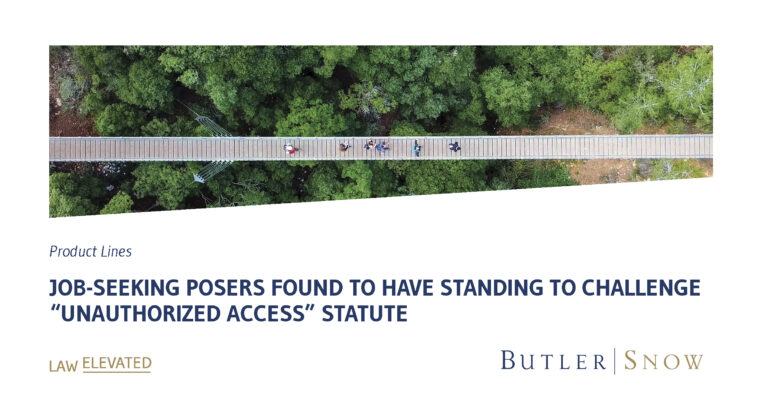Activists have standing to challenge a state law that prohibits unauthorized access to businesses for the purpose of sending undercover informants to apply for jobs, the United States Court of Appeals for the Eighth Circuit recently ruled.
In Animal Legal Defense Fund v. Vaught, 8 F. 4th 714 (8th Cir. 2021), several animal rights groups developed plans to pose as legitimate job applicants at a hog farm and poultry plant in Arkansas with the intention of taking photographs and videos to use in their protests against facilities like the ones in question. These plans were allegedly thwarted because of an Arkansas statute that provides a cause of action against any “person who knowingly gains access to a nonpublic area of a commercial property and engages in an act that exceeds the person’s authority to enter the nonpublic area . . .” Ark. Code § 16-118-113. Plaintiffs sued the hog farmer (who is also a legislator who sponsored the legislation) and a poultry processor claiming the statute violated their First Amendment rights to free speech.
The trial court granted a dismissal finding the Plaintiffs lacked Article III standing to sue because the first element “injury in fact” was too speculative. That court noted that neither of the defendants had any success in infiltrating the employee ranks at the hog farm or poultry plant. Since neither group had any material to publish the Plaintiffs had no “injury-in-fact.”
However, two Eighth Circuit judges, from a panel of three, reversed the trial court. The critical test was whether the plaintiffs had “an intention to engage in a course of conduct arguably affected with a constitutional interest, but proscribed by a statute, and there exists a credible threat of prosecution thereunder.” Vaught, 8 F.4th at 718 (quoting Susan B. Anthony List v. Driehaus, 573 U.S. 149, 159 (2014)).
The majority was persuaded with proof that these organizations had already hired investigators; planned to obtain information that violated the statute; and had succeeded in the past of filming in “hundreds of facilities” to support their protests.
The defendants and the dissent argued the threat of suit was “imaginary or wholly speculative.” Driehaus, 573 U.S. at 160. The investigator must deceive the employer and get hired. The investigator must follow through with the secret plan. The investigation must reveal a condition worthy of protesting. The investigator must successfully video or photograph the condition. The protesters must use the material to harm the facility. The facility must then decide to bring a lawsuit to recover against the protestors.
The Eighth Circuit denied a request for an en banc hearing and the case is now back in the Eastern District of Arkansas for further proceedings. The case should be of ongoing interest not only to those in the animal agriculture space, but also to all litigants as an illustration of the ever-evolving contours of “injury in fact” Article III standing jurisprudence in the wake of Spokeo, Inc. v. Robins, 578 U.S. 330 (2016).
